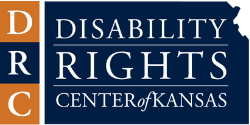
There are signs on almost every street corner; information is sent to you in the mail, and you see commercials advertising: “Reverse Mortgages”. Many of these companies are SCAMS trying to take advantage of you.
What is a Reverse Mortgage?
The most common reverse mortgage is called a “Home Equity Conversion
Mortgage” (HECM.) These are loans that allow homeowners who are 62 and older who own the home outright to borrow against the equity in their home. The purpose is to provide additional financial support and help seniors in retirement. But not everyone has a senior’s best interest in mind...
How do these scams work?
Scammers will try to talk an individual into taking a lump sum payment. The scammers will then deduct fees from the lump sum and pay themselves for expensive or unneeded repair costs, reverse mortgage counseling fees, high cost-insurance policies, and “can’t miss” investments with finder fees. Typically, once the scammers receive payment for the “fees”, they disappear, and the services paid for are never provided. The individual could face eviction if government taxes on the property are not paid.
Before contacting a reverse mortgage company, keep the following in mind.
|
|
-
- A reverse mortgage does pay off an existing mortgage. However, it comes with high closing costs, other fees, and you’re still responsible for paying your property taxes, homeowners insurance and home maintenance costs.
-
- Don’t purchase an annuity or make other investments with your loan proceeds from the lender. Loan officers are prohibited from selling you annuities or investments.
-
- Don’t sign up for a reverse mortgage unless there is a real need for the funds that you have identified. Don’t do it just because a stranger has talked you into it!
-
- Don’t sign a power of attorney to a person you don’t know or trust.
-
- Don’t give into high-pressure sales tactics. If pressed to sign, just walk away.
|
|
|
|
|
Additional tips to protect your home:
|
|
-
- Speak with a U.S. Department of Housing and Urban Development (HUD) certified housing counselor. Free counseling is available (or at a low cost based on your income). Ask for a face-to-face interview rather than by telephone. To locate a housing counselor near you, call (800) 569-4287 or go to: www.hud.gov/offices/hsg/sfh/hcc/hcs.cfm
-
- Make sure you have money to pay your real estate taxes and insurance on your home every year. You are responsible for both expenses and could lose your home if you do not pay them. This is the biggest cause of foreclosures!
-
- Work with a reputable lender. Check their listings with the Better Business Bureau at www.bbb.org
-
- Shop around. Scammers will lie and falsely claim they are the only lender you should speak with. Ignore the scammers and contact at least 3 reputable lenders instead.
-
- Attend the closing personally and make sure any proceeds are given to you and not someone else.
-
- If you do not understand why you are signing papers, talk with an attorney, trusted friend, or family member. Contact the DACVU if you think you are being scammed.
|
|
|
|
More Examples of Reverse Mortgage Scams:
-
- Equity theft scams
-
- House flipping scams
-
- Fraud by relatives or financial planners
-
- Veteran reverse mortgage scams
-
- Fraud by contractors
|
More Online Resources for Reverse Mortgage Schemes:
|
Already been scammed? Here are steps you can take:
|
|
-
- You can file a complaint with the HUD Office of Inspector General to request an investigation: www.hudoig.gov/report-fraud
-
- You can make a report with the Federal Bureau of Investigations (FBI) by phone at (800) 225-5324 or online at www.tips.fbi.gov
-
- You can file a complaint with the Kansas Attorney General to request an investigation at www.ag.ks.gov/complaint-center
-
- You can file a complaint with the Better Business Bureau at www.bbb.org
-
|
|
|
|
|
|
|
|
|
Our team understands how these scams affect people with disabilities and seniors. We are here to help you understand your rights and get the resources you need. Contact the Disability & Aging Crime Victims Unit (DACVU) to request assistance. The DACVU is a program of the Disability Rights Center of Kansas.
.png)






